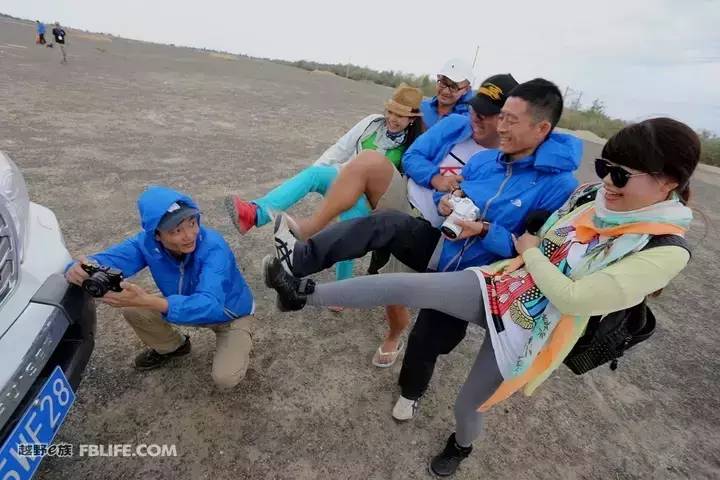
Edit: Wandering little yellow
Format: A Cong’er
Cartography: You Zi
The Great Buddha Hall at the foot of Laojun Mountain
The rhododendrons in Laojun Mountain are blooming, and the spring of the Great Buddha Hall is here.

▲Rhododendrons on Laojun Mountain Photographer: Su Jinquan
The Great Buddha Hall is a natural village located in Yangcen Township, Jianchuan County, the northernmost part of Dali. It is a successful example of rural tourism promoted in Yunnan in recent years. In the past two or three years, tens of thousands of travelers have arrived here every year. They drove here, stayed in newly renovated inns, and then rode horses or hiked into the mountains.

▲A sea of rhododendrons in Laojun Mountain. Although Yunnan is the place with the largest number of native rhododendron species in China and even in the world, there are actually only a handful of rhododendrons in such patches. Photography: Su Jinquan
The tour of the Great Buddha Hall, like many rural tours in Yunnan, has two cards, one is the natural scenery, and the other is the diverse ethnic culture of Yunnan.
Natural scenery, the Great Buddha Hall can be described as unique.

▲Laojun Mountain is located in the east of Lanping, the north of Jianchuan and the south of Yulong County
Laojun Mountain is located at the junction of Lijiang, Jianchuan, Lanping and other counties, and is the core area of the World Natural Heritage “Three Parallel Rivers” zone. To the north is the Jinsha River flowing through Yulong County, and to the west is the Lancang River flowing through Lanping County, Nujiang Prefecture. The northern part of Dali Jianchuan is the southern foot of Laojun Mountain, and this “South Gate” is considered to be the Great Buddha Hall.

▲In April and May, red rhododendrons bloom in the mountains of Laojun Mountain. The slopes below the mountain (south) are the Great Buddha Hall and nearby villages. Photography: Su Jinquan
The tourism of Laojun Mountain was developed earlier in Lijiang, and the national park was built 10 years ago (2009). Lanping and Jianchuan were developed late, catching up with this wave of rural tourism development, Laojun Mountain is quietly rising in a different posture-in the ancient city of Dali and the inn in Shaxi, many people have already included the Great Buddha Hall in their Dali itinerary Part of it (belonging to the kind of “normal people I don’t tell him” travel destination).

▲The rhododendron forest in Laojun Mountain, another color of rhododendrons. The most abundant place for rhododendrons is in the “Three Parallel Rivers” zone in Yunnan, with Gaoligong Mountain in the west and Laojun Mountain in the east. Photography: Su Jinquan

▲Close-up view of rhododendrons Photographer: Su Jinquan
Those maverick pigs in Laojunshan
Laojun Mountain is not well-known, but it has distinct characteristics.

▲Laojun Mountain has scattered ninety-nine dragon pools, which are often blocked by mountains and dense forests. In the summer when the flowers are blooming, it can be called a fairyland on earth. Photography: Su Jinquan
In terms of natural resources, words such as “Three Parallel Rivers” and biodiversity may be a bit general, but instead of “Ninety-nine Dragon Pools” plateau lakes, azaleas all over the mountains, refreshing alpine meadows, and various It should not be difficult to imagine the special products of Laojun Mountain, such as Danxia landform with strange peaks and rocks, virgin forest, Yunnan golden monkey and so on.

▲From the Great Buddha Hall to Laojun Mountain, in April and May, such a scenery is not difficult to see. Photography: Su Jinquan
The main peak of Laojun Mountain is 4,240 meters above sea level. In terms of height, it is medium. But Laojunshan, the good thing is here, it is more approachable, not pretentious at all-it is not always posing as a god (Sacred Mountain). A few years ago, I lived with a cattle herder in a wilderness in the core area of Laojun Mountain in Lanping for 10 days. I have a personal experience of the temper of this mountain.

▲The Jade Lion Farm in Lanping, a Pumi village in Laojunshan District, where the Yi people live higher than the Pumi people in this area, and it takes more than an hour to walk Photography: Long Chengpeng
There were no tourists in the Laojun Mountain area at that time, but it was not inaccessible. There are often Lisu people who collect herbs to rest in the small wooden hut built by the cattle herding daddy. And on this grazing hillside, there are actually a few families of Yi people living there. Every afternoon I go to this village to charge my computer and camera. The charging lasts for a few hours, which is just enough for dinner. They are simple and not good at words. Facing strangers like me, they only smile shyly and quietly take out the preserved bacon. A small black haired pig is raised here, and it is fried directly without adding any seasoning. It is delicious.

▲In the Lanping Jade Lion Field in Laojunshan District, a group of “Second Brothers” came home in the evening (screenshot of the video), punctually like people in the city getting off work. Photography: Long Chengpeng
Later, on the other side of the mountain, I talked with the people in the Great Buddha Hall, and I realized that the skinny black-haired pigs are also a landscape of Laojun Mountain. During the day, they go up the mountain in groups like office workers to look for food. At that time, they all consciously and slowly returned to the stockade. This kind of pig that goes home automatically has subverted our view of “Second Senior Brother”, and let me appreciate what freedom is, and even what love is.

▲The meadow on Laojun Mountain is often a place for livestock to graze, and is now one of the favorite places for travelers. Photography: Su Jinquan
The people in the Great Buddha Hall told me that the pigs raised in their village sometimes meet wild boars on the mountain, and they will fall in love freely, and then give birth to the next generation with strange bloodlines. Wild boars with tusks are very ferocious in my impression, but when I meet distant relatives who have been separated for countless generations, they don’t kill each other, but love each other. It’s really anecdotal.
Laojunshan’s people-oriented
The boundary of the “free travel” of the domesticated second brothers on Laojun Mountain is actually the scope of daily activities of the residents of Laojun Mountain – of course, people must run farther than pigs.
For the Yi, Lisu, and Pumi compatriots who live in Laojun Mountain at an altitude of about 2,000 meters, the highest altitude of Laojun Mountain is only a little over 4,000 meters. There are basically no restricted areas, and human footprints can be left almost everywhere.

▲ Laojun Mountain, every fairyland-like place can accommodate “people” Photography: Su Jinquan
In other words, you can not only stand outside the scenery and watch the scenery – many mountain scenery are prepared for telephoto photography and viewing, and you can’t be in it at all.
More generally speaking, Laojun Mountain is a people-oriented Laojun Mountain. To travel to Laojun Mountain, you don’t have to look like a professional and experienced explorer. You are free and in that mood. Here, you can Easy to play, you can play very easy.

▲The Yi family in the Great Buddha Hall in Jianchuan is also the most common life of modern people, except for some technical links such as the fire pit. The essence of life is the same, and there is no difference between “us” and “them”. Photography: Su Jinquan
In fact, this attitude of blending in, relaxing, and looking at the head is exactly the mentality we should have when approaching those foreign cultures. Not to conquer, but to approach, experience and participate with respect.
The Great Buddha Hall: a double “heritage” of nature and culture
The Great Buddha Hall is a village of the Yi people. There are 72 households and 318 people in the village, all of whom are of the Yi nationality. It is understood that this branch of Yi people migrated from the direction of Lanping over 100 years ago, generally from the northwest of Laojun Mountain to the south.

▲Panoramic view of the Great Buddha Hall in Yangcen Township, where the altitude is 2,450 meters, and the annual average temperature is only 10 degrees Celsius (Kunming averages 15 degrees Celsius). Photography: Su Jinquan
Jianchuan is famous for the Bai people, and the famous A Peng in “Five Golden Flowers” is the Bai people of Jianchuan. Compared with the Bai people, the Yi people in Jianchuan are easily overlooked. According to Jianchuan scholars, the Yi people are distributed in 8 townships and towns in the county, and there are 18 big families with a total population of more than 1,400 households and 6,351 people.

▲The Nuosu branch of the Yi nationality wearing a pleated skirt. There is no exact statement of how many branches the Yi people have so far. But Nuosu, who speaks the northern dialect, should be the most populous branch of the Yi nationality, and has always been regarded by the public as a model of the Yi nationality. Photography: Su Jinquan
It should be emphasized that these Yi people are different from the Yi people in Yangbi, Weishan, Nanjian and other places in the south of Dali Prefecture. They belong to the Nuosu branch of the Yi nationality. Their ancestral home is Liangshan, Sichuan, and they moved to Yunnan very recently.

▲The Yi Nationality of the Great Buddha Hall. For the Yi people of the Nuosu branch, men and women have different age, married and unmarried dresses. Generally speaking, when women get older, the red color gradually fades and is replaced by blue and black. Photography: Su Jinquan
Because they were immigrated from Sichuan, the costumes and culture of the Yi people in Jianchuan retain the characteristics of Liangshan in Sichuan. Moreover, since they were separated from Liangshan hundreds of years ago, the Jianchuan Yi people retained some ancient customs (compared to the modern Liangshan Yi people) on the one hand, and on the other hand added the color of the Laojunshan area.

▲ Laojun Mountain, with a forest coverage rate of more than 70%, has rare animals and plants such as yews and Yunnan golden monkeys. Photography: Su Jinquan
The culture of the Nuosu branch of the Yi nationality, in general terms, although they are settled farming people, their way of life still has a strong nomadic and hunting color. This tradition is not difficult to preserve in the Laojunshan area, which is the benefit of Shanda University. The ancestors of the Yi people who found this land more than a hundred years ago must have been very happy.

▲The forest is a place full of adventures, and it is also a wild place. In fact, many farming peoples, no matter how developed their agriculture is, have never given up the call and gift of the big forest. Today’s city people are eager to get closer to the mountains, isn’t it just such a tradition? Photography: Su Jinquan
For tourists who travel here, I personally recommend to experience the life world of this kind of mountain people. It is not an exaggeration to use “paradise” to describe that kind of continuous mountain, that kind of mountain that seems to be boundless. This is also a paradise for herders, because the cattle are on the mountain, you can go home, and when you go there ten days and a half months later, the cattle and sheep are still there, but they have grown smooth and smooth, and it is pleasing to the eye – when I was a child The happiest thing about herding cattle and sheep in my hometown is watching them grow fat and strong, as if the meat grew on my own body (it’s a pity, people don’t seem to like meat anymore).

▲Horse riding is still an exciting travel experience for many urbanites. Photography: Su Jinquan

▲Actually, the Yi people must have horses for their wedding today. But now that the transportation is developed, horses are rarely used. Neither the horse nor the bride on horseback were as skilful as their predecessors. To some extent, a married girl is also like an intruder, and riding a horse is also a way for her to experience the traditions of her nation. Photography; Su Jinquan

▲In comparison, pigs are much sadder. Pig: “If you get married, I will be stabbed, help me!” Photographer: Su Jinquan
Of course, Laojun Mountain is also a paradise for collecting medicinal materials and matsutake for the locals. If the season is right, tourists can come here to experience this kind of life, and maybe even make a small fortune.


▲The inn of the Great Buddha Hall. A few years ago, there was a popular view: “The world is flat”. In terms of hotels and inns, this view is undoubtedly correct. Travelers want to see differences, but the places they live must conform to their habits. Over the past 100 years in Yunnan, many Westerners have written travel notes, and the most complained about places may be accommodation. This is about the same as today. Photography: Su Jinquan
For a traveler, it is just a desire to go deep into the life world of the local people. In fact, he (she) cares more about the experience of tourism productization. That’s fine too. The local government encourages the villagers to decorate their extra rooms into inns to receive tourists. For this purpose, it also provides financial subsidies and supervises the quality and experience accordingly. Therefore, the accommodation here is very modern.

▲This boiled bacon basically does not need other seasonings. In order to emphasize this element of the Yi nationality, it is specially served in a lacquer bowl. Photography: Su Jinquan
As for the diet, local flavors have also been integrated with modern hygiene concepts and diverse ingredients, especially the famous Yi people’s tuo tuo meat and buckwheat cake (one is very meaty and the other is very vegetarian). It is a common household item, and its skills have long been honed.



▲The last one is buckwheat cake. This is a testimony of the hard life in the past, and it is also a symbol of today’s Yi people’s food culture. Tartary buckwheat is only found in high mountains, and it is almost tailor-made for the Yi compatriots who live at an altitude of more than 2,000 meters in Laojun Mountain. Photography: Su Jinquan

▲Integrating ethnic culture and authentic ingredients into modern catering, the Great Buddha Hall has done a good job, right? Photography: Su Jinquan
For rural tourism in ethnic villages in Yunnan, music, singing and dancing are almost standard, and the Great Buddha Hall is naturally not lacking. The Great Buddha Hall is a “characteristic village of ethnic minorities in China” named by the National Ethnic Affairs Commission, and it is also a model village of beautiful countryside and a characteristic village of the Yi nationality. A large part of these titles come from the Yi tradition preserved here.

▲ Yi nationality wedding in the Great Buddha Hall. Wearing a hijab and a charva (a kind of woolen shawl) on the New Year’s Day, the cousin will carry it away from home until he sits on the horse brought by the groom’s family. This is a very traditional wedding custom. The Great Buddha Hall, a village not far away, indeed retains a very distant custom. Photography: Su Jinquan

▲Tourists experience the singing and dancing style of the Yi nationality in the Great Buddha Hall. Photography: Su Jinquan
The Yi people here really wear their national costumes and dance their national dances. If the timing is right, for example, you are lucky enough to meet a wedding, then you will definitely be able to see an authentic and complete display of ethnic customs.

▲Under the brilliance of the national poverty alleviation policy, the Great Buddha Hall has been transformed from the old to the new. Photography: Su Jinquan
The saddest thing about rural tourism is to destroy the real thing, and then spend a lot of money, paint it up, and make a fake thing (but it is said to be “perfect”) to cater to (in fact, deceive) tourists. Although the appearance of the Great Buddha Hall is also changing, it is basically not a destruction, but a construction.

▲ Lighting the torches of the Torch Festival is an auspicious journey. Photography: Su Jinquan
For example, move out the stinky livestock pens, improve the garbage and sewage system in the village, dredge the river… In short, wash the face of the village and welcome visitors from all directions in a way that everyone accepts.




